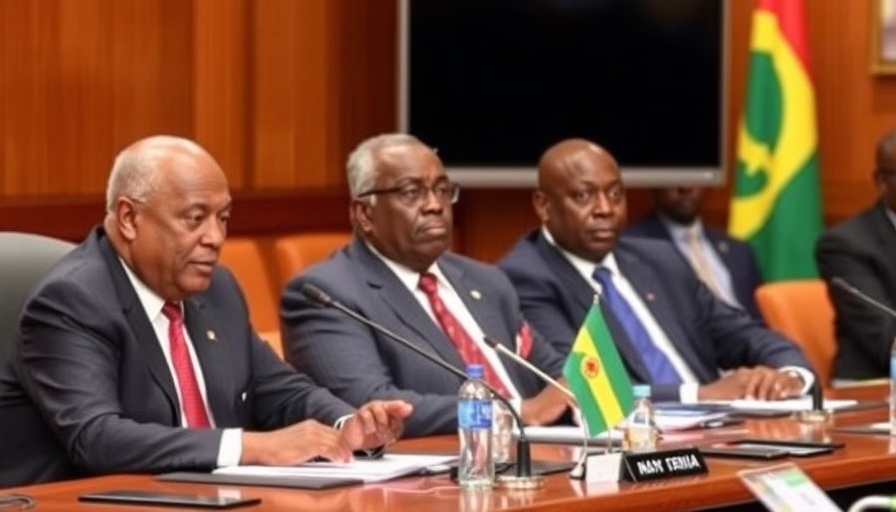
Understanding EAC's Security and Financial Challenges
This week, in the heart of Arusha, Tanzania, a crucial gathering of the East African Community (EAC) Council of Ministers is unravelling. The discussions revolve around two pressing issues: the escalating security challenges in eastern Congo and the budgetary constraints that are stifling the operations of the EAC Secretariat. Such meetings are pivotal in deciding how the region can navigate through its increasingly turbulent political landscape.
Tracking the Humanitarian Crisis in Eastern Congo
A stark reminder of the consequences of conflict emerges from the provinces of North and South Kivu in the Democratic Republic of Congo, where over 700,000 individuals have been displaced in recent months due to renewed hostilities from the M23 insurgent group. This upheaval has not only aggravated the humanitarian conditions but has also reignited debates on the effectiveness of regional security interventions. The EAC’s collaborative efforts with the Southern African Development Community (SADC) aim to restore peace in the region, but the outcomes of these joint initiatives remain uncertain as the situation progresses.
Financial Struggles: EAC’s Operations at Stake
The financial reality of the EAC is equally concerning. Discussions will focus on the budgetary limitations affecting the bloc, undermining its operational efficiency and complicating the timely execution of commitments, including key staff salaries. With an increased reliance on member states for funding, this crisis raises critical questions about the bloc’s sustainability and effectiveness in addressing both economic and security concerns.
Challenges in Regional Mobility: The Somali Dilemma
Amidst these overarching issues, Somalia’s grievances regarding visa constraints for its officials serve as a microcosm of the broader challenges of regional integration. The Somali government has voiced its concerns to the EAC about the restrictions faced by its citizens traveling across member states. This situation underscores the challenges of effectively implementing the Common Market Protocol, which aims to facilitate the movement of individuals and goods within the community.
The circumstances call for a collective commitment from EAC member states to enhance mobility and cooperation, which is essential for enhancing trade and regional stability.
Looking Ahead: What It Means for Africa’s Future
Overall, the EAC ministers' deliberations in Arusha signal a critical juncture for East Africa as it confronts myriad challenges—both humanitarian and financial. The outcomes of this meeting will be crucial as the region strives to solidify its role within the larger geopolitical framework of Africa and its relations with global economies. As businesses and policymakers observe these developments, it is imperative that the implications of both security and economic disruptions are factored into strategic planning for the future of the region.
 Add Row
Add Row  Add
Add 


Write A Comment